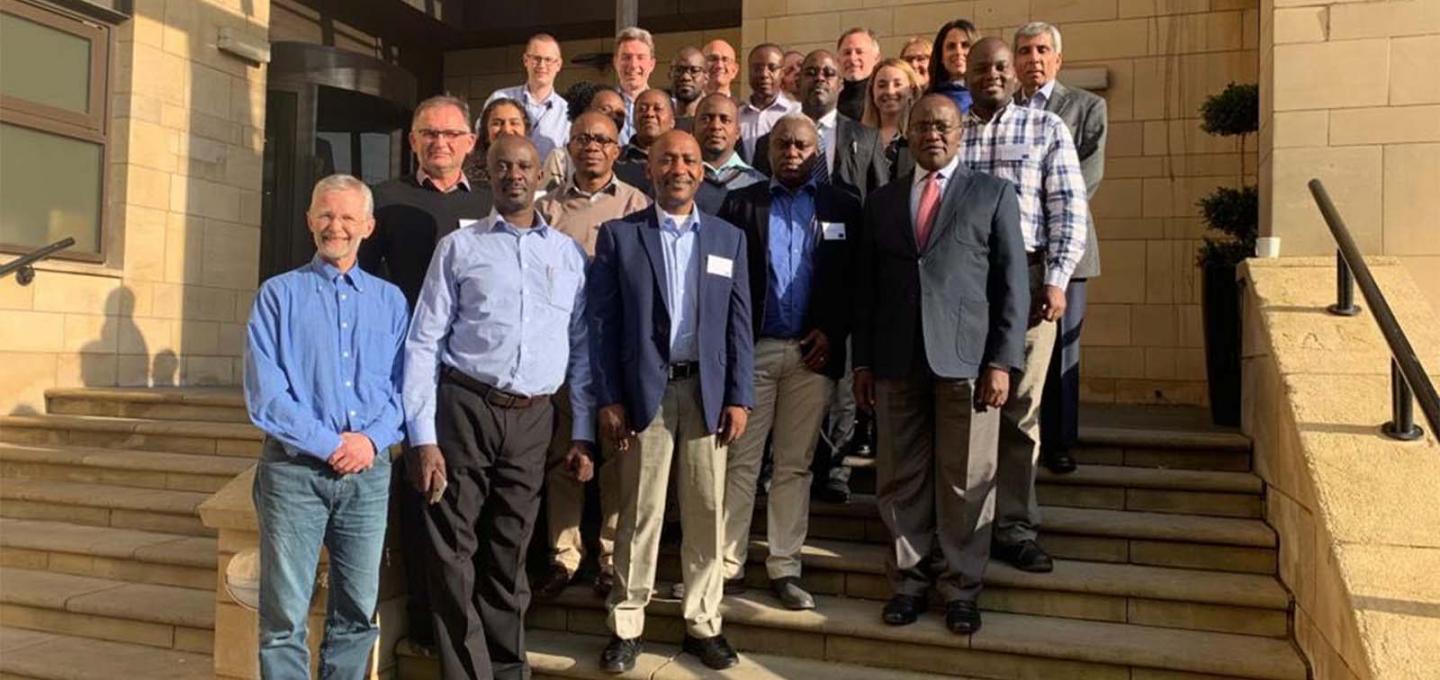
IMAGE: INTE-AFRICA is led by an international research group that met in Liverpool, UK, on March 27-28. view more
Credit: C. Picchio
The kick off meeting of INTE-AFRICA, a major European Commission-funded project that will study the integration and decentralisation of HIV, diabetes and hypertension care in two African countries, took place in Liverpool, UK, on 27-28 March. INTE-AFRICA is led by an international research partnership and collaboration of nine partners.
During the kick-off of the four-year project, Shabbar Jaffar, Professor of Epidemiology and Global Health at the Liverpool School of Tropical Medicine, underlined the “need for research that establishes feasibility, acceptability, effectiveness and cost-effectiveness of integrating and decentralising HIV, diabetes, and hypertension services in sub-Saharan Africa.”
“The demand for diabetes and hypertension care in Africa will soon be so great that health facilities will become overloaded,” explains Jeffrey Lazarus, ISGlobal researcher and work package leader. “Therefore, we need to find a way to integrate these services to manage them more efficiently, and to decentralise to community-based care,” he adds.
Africa is undergoing a rapid health care transition and chronic conditions will overtake that of infectious diseases within the next 10-20 years. The chronic conditions of gravest concern are hypertension and diabetes. Unlike in high-income countries, diabetes and hypertension affect young-middle-aged adults across all socioeconomic classes.
The low coverage of services for these conditions across sub-Saharan Africa is “mainly due to a shortage of clinically qualified health care staff, drug supplies, and services that are ill equipped to handle the increase of non-communicable diseases”, emphasises Josephine Birungi, project partner and senior scientist at The AIDS Support Organisation (TASO, Uganda).
These approaches towards more sustainable services and care will be tested in Tanzania and Uganda, two countries where the consortium has been conducting research and establishing a strong partnership for many years.
INTE-AFRICA aims to test the efficacy of two approaches for integrating diabetes and hypertension services: alone or together with HIV-infection services. A solid experience has been acquired over the years in managing HIV as a chronic disease, and many of these practices could be applied for the effective management of diabetes and hypertension. Whilst focusing on Tanzania and Uganda, the study results should be relevant and applicable to other conditions and other sub-Saharan countries.
“This project could lead to an increase in the coverage and sustainable long-term care of these conditions,” says Sayoki Mfinanga, chief research scientist and director of the partner institution NIMR in Tanzania.
The Consortium: INTE-AFRICA is led by the Liverpool School of Tropical Medicine (LSTM, UK), in collaboration with the Barcelona Institute for Global Health (ISGlobal, Spain), the National Institute for Medical Research NIMR, Tanzania), the University of Bergen (Norway), the University College Dublin (Ireland), the University of East Anglia (UK), the Liverpool John Moores University (UK), the MRC & LSTMH Uganda Research Unit (Uganda), and The Aids Support Organisation (TASO Uganda).
###
Disclaimer: AAAS and EurekAlert! are not responsible for the accuracy of news releases posted to EurekAlert! by contributing institutions or for the use of any information through the EurekAlert system.

